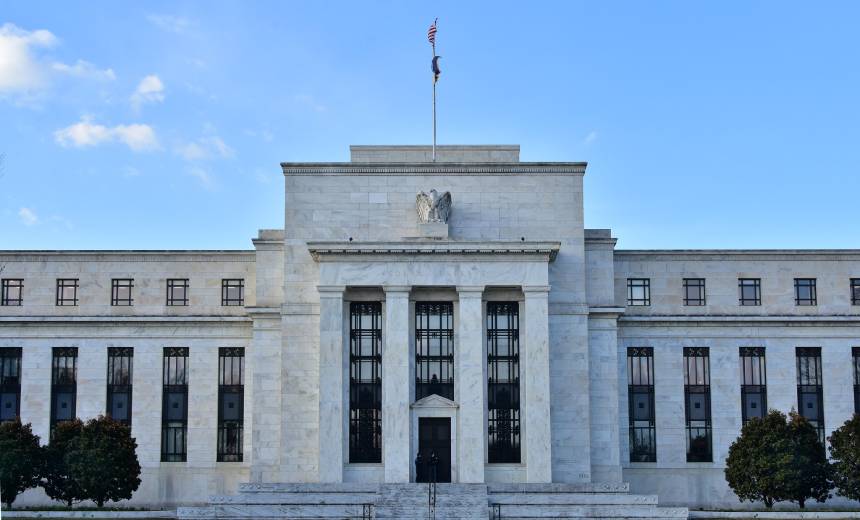Blockchain & Cryptocurrency
,
Next-Generation Technologies & Secure Development
,
Standards, Regulations & Compliance
Digital Assets Likely ‘Inconsistent With Safe and Sound Banking Requirements’

A clutch of major U.S. financial regulators sounded alarms Tuesday over banking organizations holding as principal cryptocurrencies, calling digital assets on decentralized networks “highly likely to be inconsistent with safe and sound banking requirements.”
See Also: OnDemand | Understanding Human Behavior: Tackling Retail’s ATO & Fraud Prevention Challenge
A joint statement from the Federal Reserve, Federal Deposit Insurance Corporation and the Office of the Comptroller of the Currency says regulators also have concerns over business models that depend heavily on digital asset activities or have concentrated exposures to cryptocurrency.
The missive comes after a volatile year for cryptocurrency that, for critics, showcased possibly endemic weaknesses. The past year witnessed the crash of Terra-Luna, an algorithmic stablecoin supposedly pegged to the value of the U.S. dollar. Crypto trading platform FTX, marketed as cryptocurrency’s gateway to the mainstream, collapsed amid accusations from federal prosecutors that it was corrupt from the start. Those high-profile collapses combined with plunging values and ongoing uncertainty about the security of decentralized finance platforms have thrust cryptocurrencies into what the industry calls a “crypto winter.”
The regulators’ memo may add to the coldness by adding to the perception of cryptocurrency as fringe investment. Crypto asset risks that “cannot be mitigated or controlled” must not migrate to the banking system, regulators wrote.
Cryptocurrency boosters discounted regulators’ message. “There is nothing new here and nothing actionable other than a ‘stay clear of crypto’ message. It is too little too late,” said Avivah Litan, a vice president at Gartner who specializes in emerging technologies.
Litan told Information Security Media Group that regulators are mistaking the actions of private companies with the underlying technology. Blaming open decentralized networks for Ponzi schemes “is like blaming houses for the mortgage backed securities-induced financial crisis,” she said.
Regulators have recently moved impose protections for investors through steps such as President Joe Biden’s March executive order and federal agency recommendations to curb the illicit use of digital assets.
In October, the U.S. Financial Stability Oversight Council, chaired by Treasury Secretary Janet Yellen and comprised of the heads of every major federal financial regulatory agency, unanimously approved a report concluding that crypto asset activities pose risks to stability if trading is left to grow without additional regulation. It recommended a slew of changes including the passage of legislation granting rulemaking authority to federal financial regulators over the spot market for crypto assets that are not securities, such as Bitcoin.
More recently, Senators Elizabeth Warren (D-Mass.) and Roger Marshall (R-Kan.) introduced the Digital Asset Anti-Money Laundering Act at a Senate Banking Committee hearing. The legislation proposes putting assets, including cryptocurrency, on par with traditional finance regulations to address national security – including cybersecurity – risks they pose, Warren said at the time.
